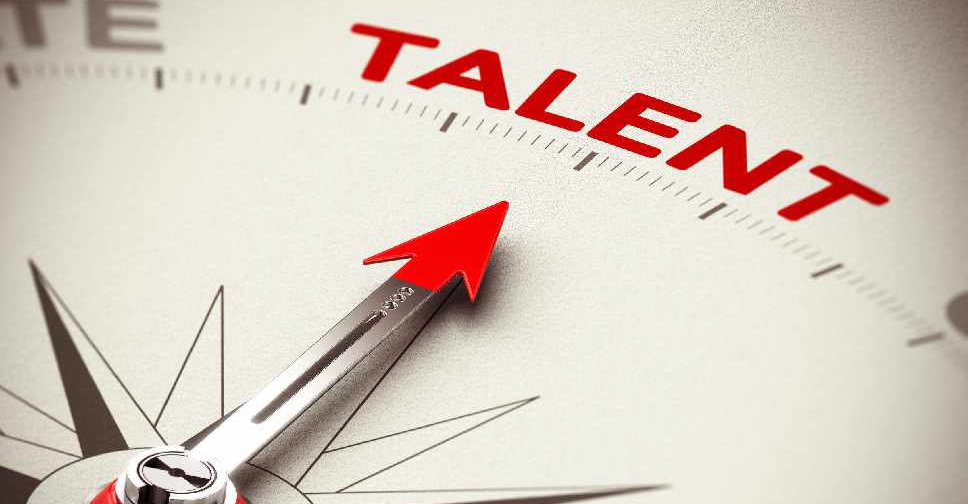
Companies in the UAE are expected to ramp up hiring as revenue is likely to surge as much as 50 per cent over the next 12 months.
That's according to a survey by HSBC, which examined more than 2,000 leading businesses around the world.
It showed that three out of four companies in the UAE expect to hire more staff in the coming 12 months and that they rank the anticipated ‘battle for talent’ as crucial to delivering on ambitious growth plans.
"Our new HSBC Navigator report on the Future of Work shows clearly that executives believe the battle for talent is vital to driving sustainable profitability – particularly as companies bounce back from the COVID pandemic – with almost 90 per cent of companies surveyed in the UAE seeing a strong relationship between investment in the workforce and business success,” Daniel Howlett, Regional Head of Commercial Banking for HSBC in the Middle East, North Africa and Turkey, said.
"The companies involved in our research in the UAE are targeting roughly 25 per cent revenue growth on average over the next 12 months and eight in 10 of them are already making significant investments in hiring, upskilling, or training.
"The future working environment is still taking shape and it is already clear to executives that the changes to come are likely to have a profound impact on both the engagement of staff and the profitability of the companies that people choose to work in,” Daniel added.
Almost all business leaders (97 per cent) surveyed for the research in the UAE agree that optimal working arrangements in future would include a form of remote working, closely in line with the views of their global counterparts (95 per cent).
More than half are supporting employees with digital skills training (52 per cent), while 44 per cent are providing work life balance programmes to prepare staff for the future of hybrid working.
"The business community in the UAE is one of the most dynamic in the world, always quick to adapt to changing business environments, which makes this prioritisation of employee well-being, training, skills development and flexible working a clear indication of the global trend," Daniel said.
Future of work
Salary remains a key factor for attracting and retaining talent in the UAE, with 47 per cent of business leaders citing it as such, but executives are increasingly focused on the views of staff who see hybrid working arrangements boosting growth and organisational culture.
The top four areas that UAE businesses are upskilling their workforce in to respond to emerging macroeconomic trends are managing and supporting staff wellbeing (47 per cent), management and leadership in hybrid environment (41 per cent), cyber security (40 per cent) and environmental, social and governance frameworks (ESG) (38 per cent).
Innovation and customer experience
UAE businesses are the most confident globally about driving innovation in product and customer service (67 per cent) over the next 12 months, and 74 per cent are optimistic about achieving their priority of improving customer experience, third highest globally after Mexico (77 per cent) and China (77 per cent).
"It’s great to see that product and service innovation is front-of-mind for UAE’s business community, which is particularly relevant when bearing in mind that Expo 2020 – the global showcase of innovation and ideas that shape the world in which we live – has just begun here in the UAE. Innovations that create opportunities, drive mobility and nourish sustainability are key themes at Expo 2020 and they align well with what UAE businesses say will enhance their competitive advantage regionally and globally,” Daniel added.
Managing costs (64 per cent) is the biggest challenge businesses in the country foresee in coming months, but they also expect hybrid working to make it easier to manage cost challenges (77 per cent), improve staff productivity (76 per cent) and enhance profitability (76 per cent).



 Nasdaq set to confirm bear market as Trump tariffs trigger recession fears
Nasdaq set to confirm bear market as Trump tariffs trigger recession fears
 Dana Gas and Crescent Petroleum exceed 500M boe in Khor Mor field
Dana Gas and Crescent Petroleum exceed 500M boe in Khor Mor field
 China to impose tariffs of 34% on all US goods
China to impose tariffs of 34% on all US goods
 Shares bruised, dollar crumbles as Trump tariffs stir recession fears
Shares bruised, dollar crumbles as Trump tariffs stir recession fears
 Wall Street futures sink as tariffs fuel recession fears
Wall Street futures sink as tariffs fuel recession fears



